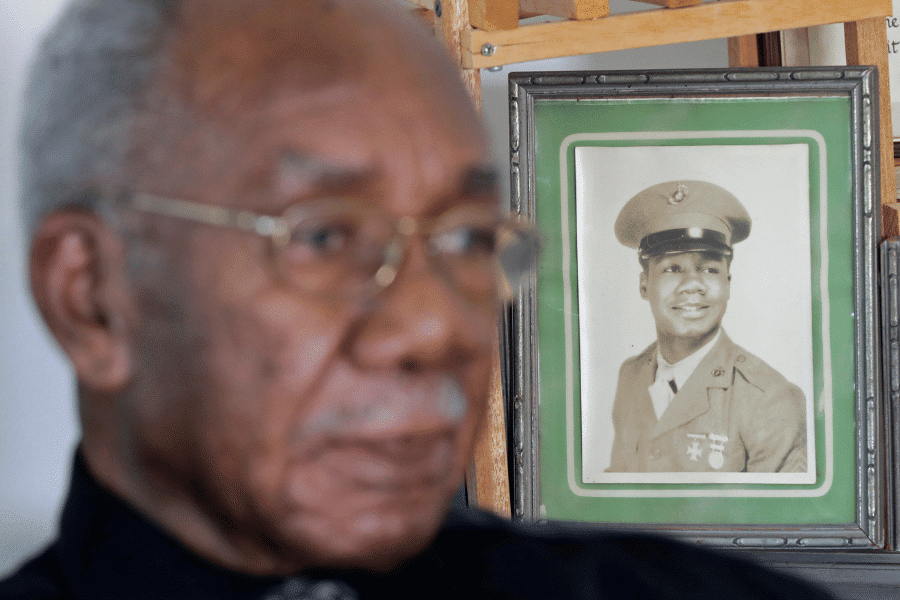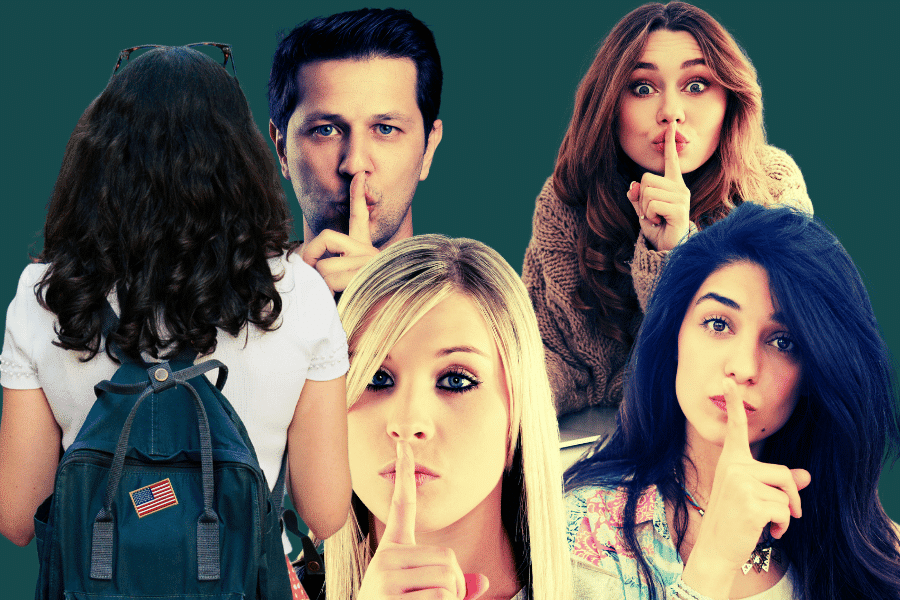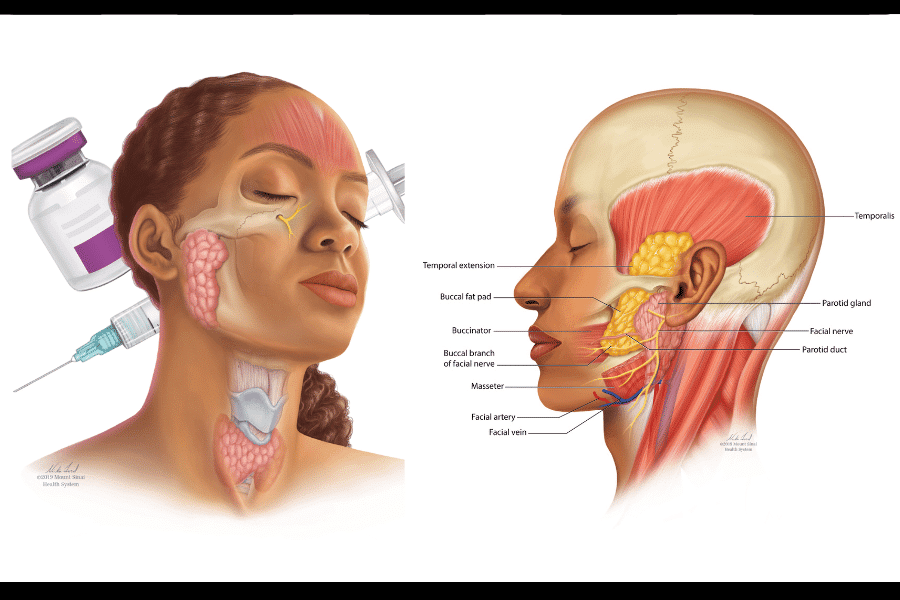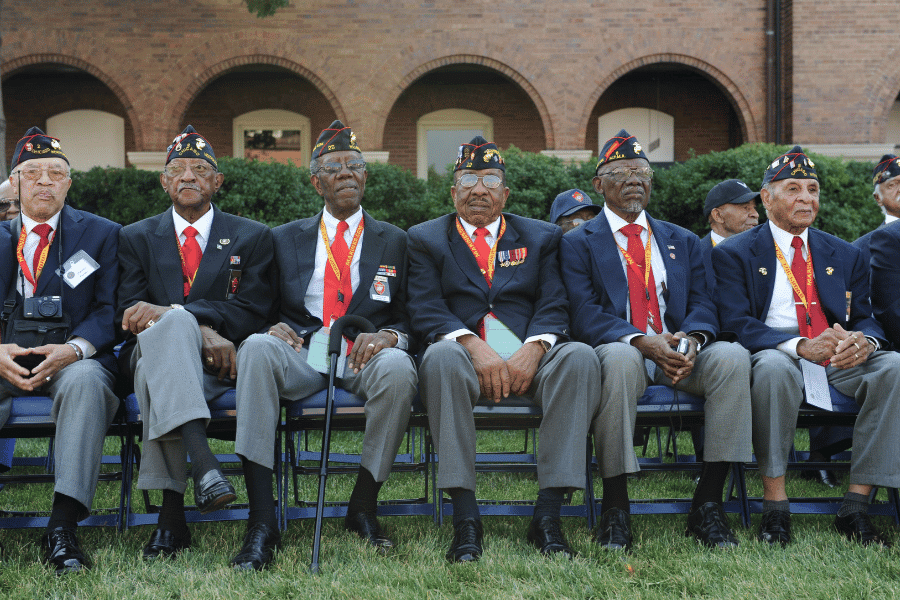
by Lance Roller II | 8 Oct 2025 | History, United States
The U.S. military has a long history of racial discrimination. The Trump administration’s disdain for diversity in the military is nothing new. Montford Point Marine John Thompson in front of a portrait of him in uniform at his home in Greensboro, N.C. on 3...

by Aida Sherwani | 22 Jul 2025 | Contest winners, Europe, United States, Youth Voices
Racial bias isn’t readily apparent in Latvia. But simply how you use your voice can set you apart as a foreigner. People tell a young woman to be quiet. (Illustration by News Decoder) This article, by student Aida Sherwani, tied for second prize in the 18th News...

by Lance Roller II | 29 Apr 2024 | Art, Media Literacy, Science
Ailments affect all kinds of people. But images doctors see in their textbooks and research journals don’t often reflect that. AI just makes it worse. Two medical illustrations by artist Ni-ka Ford. On the left is a depiction of botox injections. On the right is...

by Lance Roller II | 5 Mar 2024 | History, United States, University of Toronto Journalism Fellows
Thousands of Black Marines fought in World War II. But they had to fight for the right to do so. Now their nation wants to honor them, if they can be found. Montford Point Marines attend a Congressional Gold Medal Commemorative Ceremony at Marine Barracks Washington...

by Jaeda Liddell | 3 Nov 2022 | Art, Culture, Personal Reflections, Student Posts, Thacher School, Youth Voices
Writing poetry helps 14-year-old Jaeda Liddell handle pent-up emotions. She gives voice to the anxieties and concerns of an entire generation. This article, by high school student Jaeda Liddell, was produced out of News Decoder’s school partnership program. Jaeda is...





